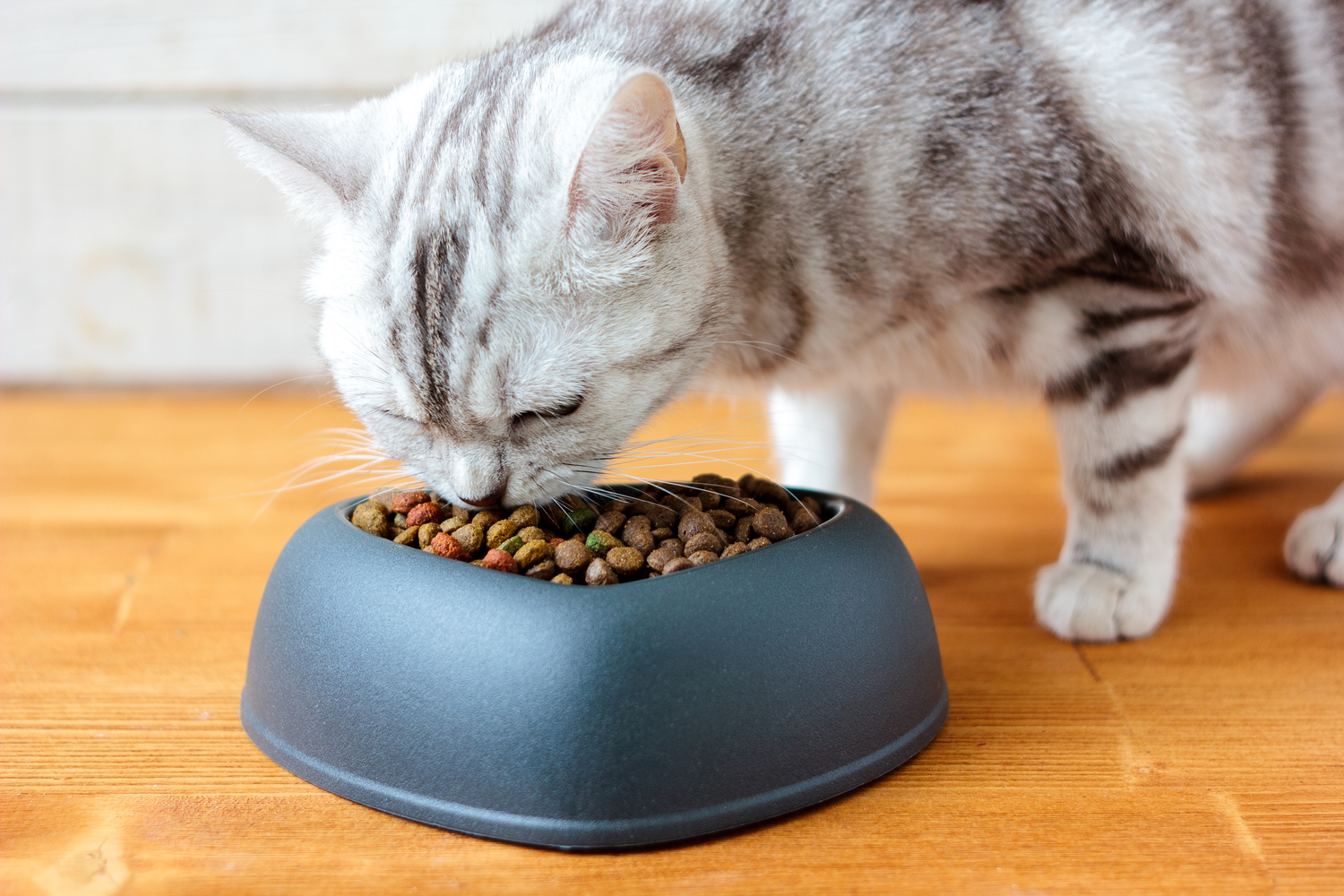
Treating and Feeding Cats with Care
Even though many of us won’t admit it, as pet owners I know I’m guilty of feeding my cat too many treats. I treat him when I leave the house. I treat him when I come home and he greets me at the front door. I treat him after a successful car ride to the vet. I treat him for just being cute. Most of us probably feed our felines more cat treats than they can chew (but they still do, with eagerness). However, excessive treating or feeding is not the best for our cat’s health. It can lead to obesity, and diabetes mellitus, arthritis, and even heart disease.
So before you choose any old bag of treats, talk to your vet about how to treat your cat without spoiling him or her:
1. People food is a no-no
I know that Fluffy gives you sad eyes and rubs up against your leg when you eat. So much so that’s it’s tough to resist giving her just a nibble of your meal. However, vets warn that people food is not meant for cats. Fatty, salty, and spicy foods in particular can lead to digestive upset, vomiting, and even pet toxicity if you feed a cat a dangerous food they can’t digest unknowingly (i.e., onions, garlic, grapes, or fruit with pits).
2. How much sodium?
Just because the store bought pet treats claim to be healthy for your cat, it’s up to you as a pet owner to do due diligence and examine those nutrition labels. Overly processed cat treats and jerkies can contain abundant levels of empty fats and sodium to accentuate taste. Yet these can lead to several health issues (i.e., kidney and liver problems) in felines over the long term.
3. Treats for specific health conditions
If your feline suffers from diabetes, food allergies, arthritis, dental health issues, or kidney disease, you may be already feeding him or her a specialized diet. The same guidelines should apply to your treats. For instance, pets with food allergies should eat treats with no trace of the food allergen (i.e., soy, salmon, egg, gluten, etc.). Additionally, pets with kidney disease often have difficulties digesting certain proteins, so speak to your veterinarian about an appropriate cat food and treats.
4. Over-treating
Many of us rewarded our cats for good behavior by giving them a treat (okay, maybe 3), but while you want to reinforce good behavior, you can get into a cycle of treating your cat for almost everything. Felines are smart animals who will display certain treat-induced behaviors if they know there are perks. So don’t be afraid to use pets, play, and praise to reward them so you don’t end up over-treating and creating a weight issue.
5. Treat for oral health
The food and treats you feed your cat will affect their energy levels, coat, digestive health, and heart and kidney health, but they’ll also affect their dental health as well. Junky treats with too many empty calories and fat can lead to tartar and plaque buildup on cat teeth and gingivitis on gums. So be sure to choose treats that help prevent tooth decay and gum disease. Seek out advice from a veterinary professional.


